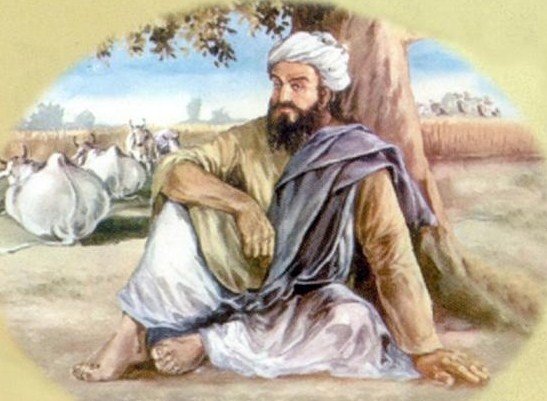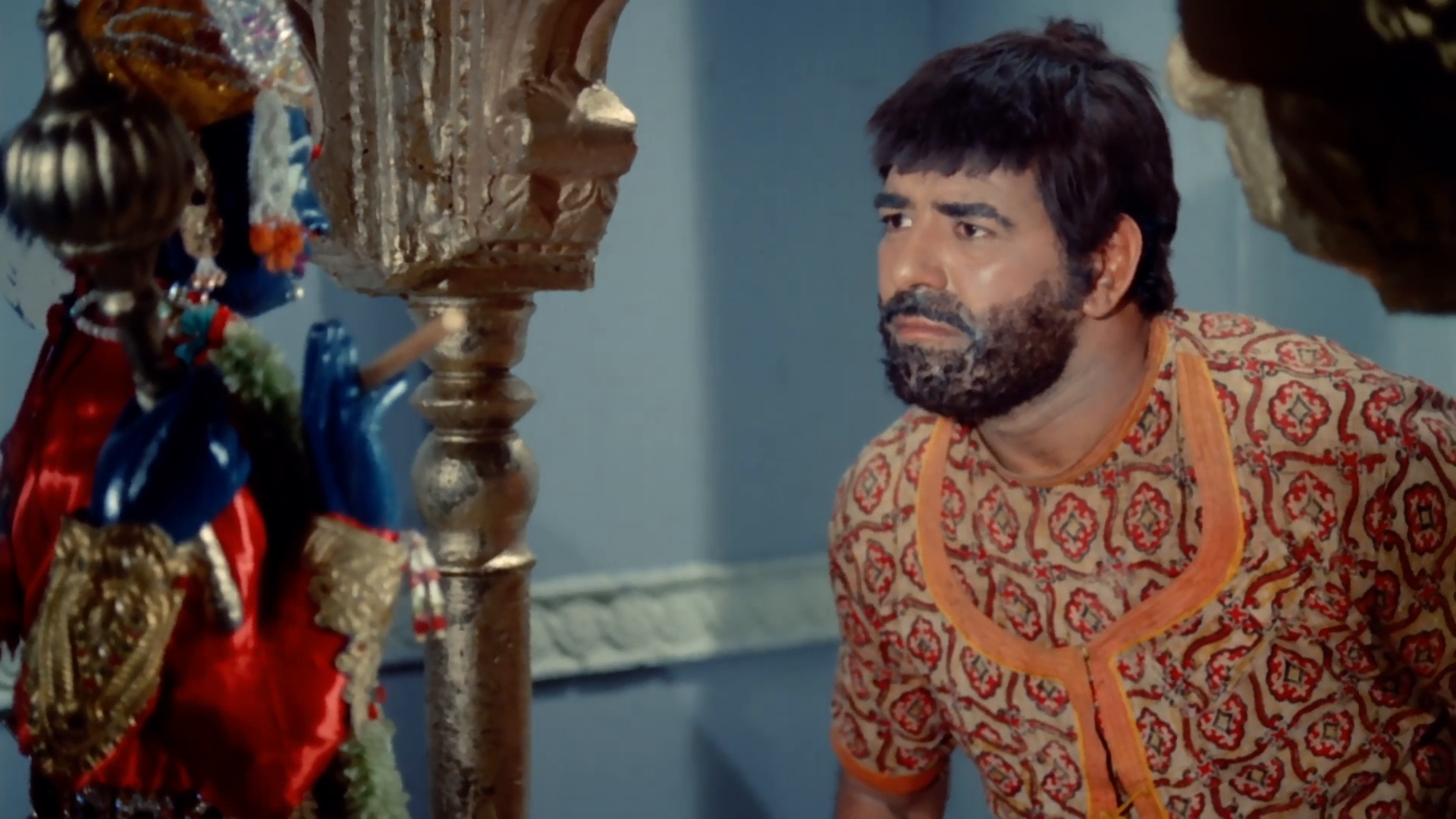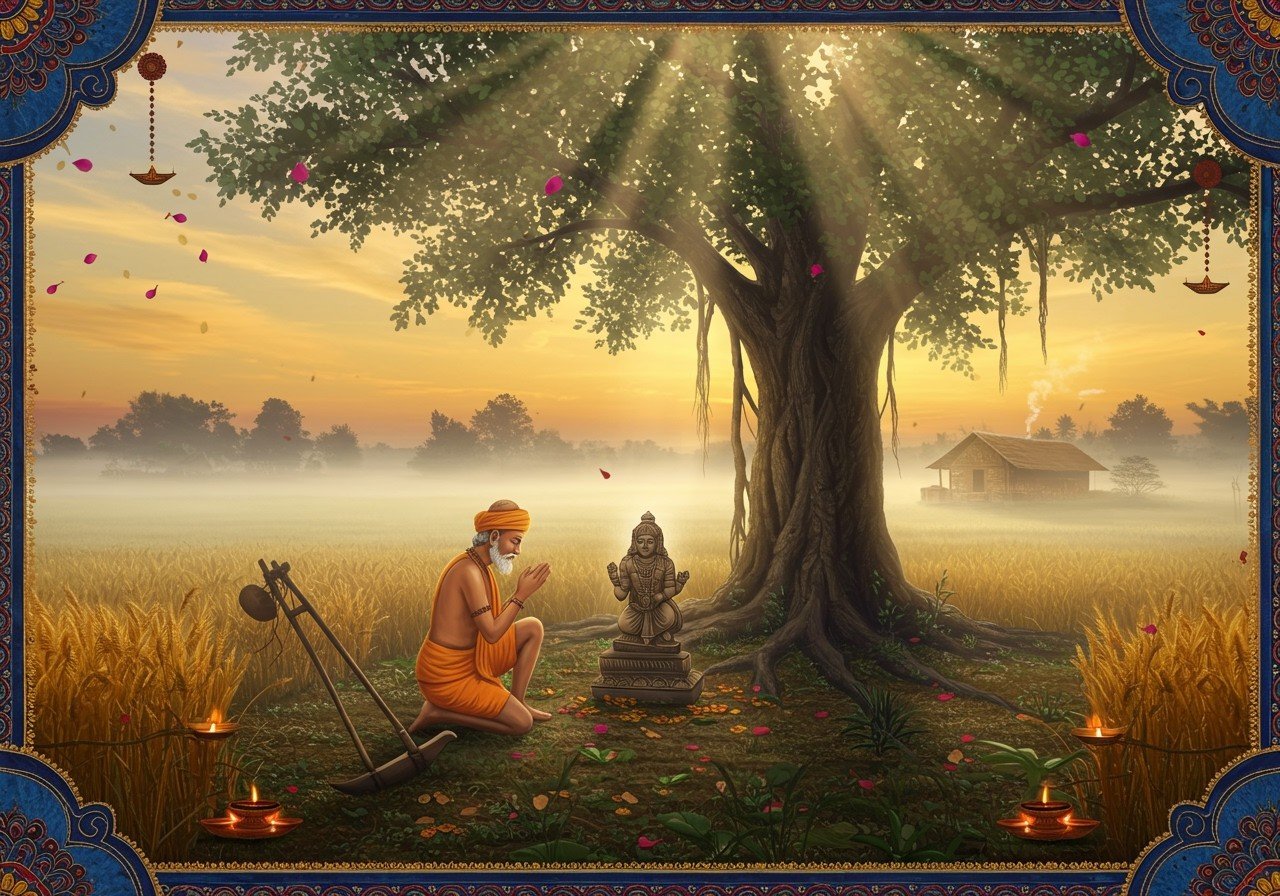
Bhagat Dhanna Ji, also known as Dhanna Bhagat, was a very much adored saint of the medieval age, whom we still look up to today. He is a symbol of simplicity, devotion, and pure dedication to God. His story is that of how true devotion, which looks beyond rituals, caste, and social status, leads to divine realization.
Bhagat Dhanna’s Early Years.

Bhagat Dhanna Ji was born in 1415 A.D. in the village of Dhuan, which is near Tonk in Rajasthan, India. He came from a Jat farming family that was of low means. Although at birth he came into a rural setting which did not afford him great access to formal education, Dhanna Ji’s heart was full of innocence and curiosity about the world and God. From a very young age, it was seen that he had great empathy for all living beings, which in turn won him the love and respect of his community.
As a young man, Dhanna Ji was a field worker; he plowed the land and took care of the crops. He was an honest and hard-working individual, which was very much a part of his character. But it was also at this time that he began his spiritual journey, out of which came questions of the practices and rituals that surrounded him. He put into doubt the idea that God could only be found through the performance of those rituals and instead put forth the idea that there may be a more profound element to devotion.
Encounter with a Brahmin and the Idol incident.
Bhagat Dhanna Ji is known mostly for the story of his simple faith, which played out in an interaction with a Brahmin priest. Once, while plowing his field, Dhanna Ji ran into a Brahmin who was transporting idols of deities. Curious, Dhanna Ji put it to the Brahmin what the idols were for. The Brahmin said that those were forms of God that people worship to receive blessings.
Dhanna Ji went to the Brahmin with a very pure and simple heart and asked for one idol which he could have for himself to worship God directly. The Brahmin, out of amusement at Dhanna Ji’s innocence, played a trick. He gave him a simple stone and said, “This is your God, daily go and offer it food and pray to it. “Dhanna Ji took the stone in full faith, not knowing the Brahmin’s jest.
That night, Dhanna Ji put out the stone for company, gave it food, and prayed with great devotion. When he saw that the food was left uneaten, which broke his heart, and he prayed hard, saying, O Lord, who is my guest today, please eat of the food, otherwise I won’t either. His faith was so pure that it is said that God appeared in the form of a light and accepted the offering.
This story is of how God does not reside in idols or temples but in the pure heart of a truly dedicated devotee. Dhanna Ji’s unshakeable faith turned a stone into a living form of the divine.
Teachings and Philosophy

Bhagat Dhanna Ji gave out very basic, at the same time, very deep teachings. He said that which God you will find in great complex rituals, in wealth, or in great knowledge, no, rather in humility, in love, and in true devotion. Also, he lived by the fact that pure is the heart that is free from greed, pride, and hate.
He put forth that all are the same in the eyes of God, which includes beyond one’s birth-based caste and social standing. Also, in his life, which was a challenge to the very rigid caste structure of that time, he proved that spiritual growth is for all who have a pure heart. Dhanna Ji’s humbleness and his life dedicated to service spoke of his true worship, which is in doing honest work and selfless living.
In the Guru Granth Sahib, which is the Sikh holy scripture, some of his shabads are included. Also in his collection of verses, which we see in the Guru Granth Sahib, Dhanna Ji talks to God like a child; he puts forth devotion, thanksgiving, and also the yearning for divine love.
Legacy and Influence
Bhagat Dhanna Ji’s tradition lives on to this day in the hearts of people from all faiths. Out of the 15 Bhagats, which are included in the Sikh holy scripture by Guru Arjan Dev Ji, he is one of them. Also, it is in his life that we see how pure devotion and constant faith may lead to divine realization.
In the present day, it is his birthplace in Rajasthan that sees to it that devotees from all over India come to pay their respects to him. His tale is told in songs, in sayings, and in folk stories, which in turn stress simplicity, honesty, and unshakeable faith in God.
Conclusion

The story of Bhogta Dhanna Ji tells us that God does not hear great rituals but the plea of a pure heart. From being a typical, common farmer, and culminating as a saint who is cherished through the ages, he is an indication of the power of true devotion. In his life and in what he taught, Bhogta Dhanna Ji pushed us to consider that faith and humility would make even the simplest of environments sacred. And even today, his voice continues to ring true through the ages — that God does not reside in any temple or idol, but God resides in the pure heart and being of a true devotee.



